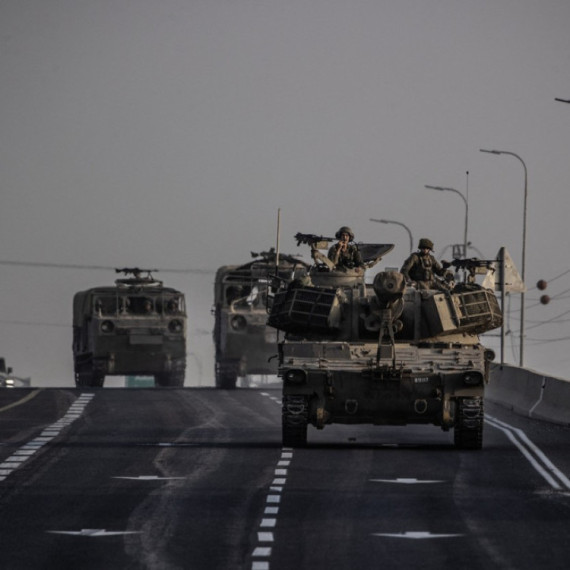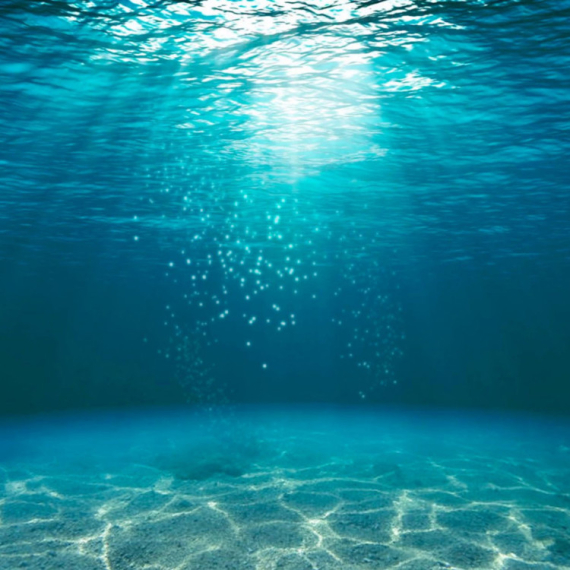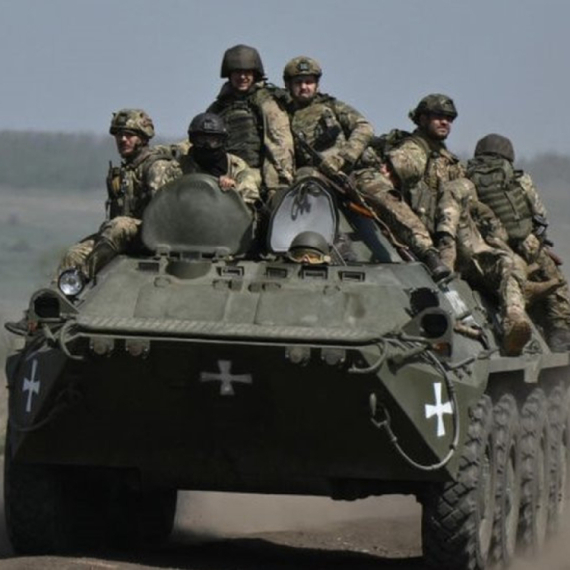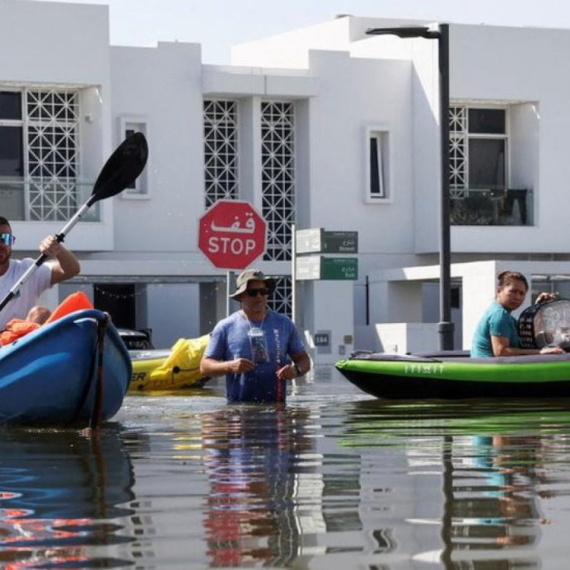ICG: Kosovo independent in May 2008
The International Crisis Group has offered the latest date for Kosovo's independence, which it says is "optimal".
Friday, 07.12.2007.
13:24

The International Crisis Group has offered the latest date for Kosovo's independence, which it says is "optimal". The organization feels it is probable that an agreement will be reached between the U.S., the UK, France, Germany and Italy with Pristina to declare Kosovo independence in May 2008, on the basis of the Ahtisaari Plan, after which those five countries and others would recognize the new state. ICG: Kosovo independent in May 2008 In a report published today, it is stressed that, even after conditional independence, the international community would continue to have to help Kosovo and Serbia settle the dispute in such a way that leads to the repeal of Resolution 1244, Kosovo membership of the UN, and a final guarantee of stability in the west Balkans. As soon as the Contact Group informs the UN secretary general of the failure of the Troika-led talks on December 10 or thereabouts, five Contact Group countries, despite opposition from Serbia and Russia, will quickly begin applying a plan for peaceful transition, that will culminate in May 2008 with Kosovo’s conditional independence. Much now depends on the dynamic between the EU and UN Secretary General Ban Ki-moon. On December 14, at a meeting of member-state presidents and prime ministers, the EU must officially announce that it considers talks to be over, that the Ahtisaari Plan is the best way to proceed, and that it is ready to deploy its mission, says the report. “The secretary general and Brussels have a degree of mutual independence in this process. Without a clear and unambiguous message from the Council of Europe meeting, it is unlikely that Ban will feel able to send any kind of welcome to an EU mission,” the International Crisis Group insists. The Group does not believe that Ban will resist Russian pressure, nor is it sure of the EU’s own decisiveness. And, without his help, and the offer of at least some sort of UN legitimacy, it is unlikely that the EU will overcome its final reservations, and vote to deploy the mission. The new Kosovo government is due to announce its intentions in January 2008 that, according to the Ahtisaari Plan, it will declare independence after 120 days of the transitional period and will call on the EU to immediately deploy its mission, and NATO to retain its own forces. The Contact Group five and as many other EU countries as possible, would, after declarations of intentions, advocate recognition of independence soon after, in May 2008, says the International Crisis Group. In the report, it is also predicted that, under the threat of a Moscow veto in the Security Council, Resolution 1244, which recognizes Serbia’s sovereignty over Kosovo, will not be repealed, nor will it be possible to approve the plan for the province’s conditional independence under the Ahtisaari Plan and the EU mission entrusted with its application.
ICG: Kosovo independent in May 2008
In a report published today, it is stressed that, even after conditional independence, the international community would continue to have to help Kosovo and Serbia settle the dispute in such a way that leads to the repeal of Resolution 1244, Kosovo membership of the UN, and a final guarantee of stability in the west Balkans.As soon as the Contact Group informs the UN secretary general of the failure of the Troika-led talks on December 10 or thereabouts, five Contact Group countries, despite opposition from Serbia and Russia, will quickly begin applying a plan for peaceful transition, that will culminate in May 2008 with Kosovo’s conditional independence.
Much now depends on the dynamic between the EU and UN Secretary General Ban Ki-moon. On December 14, at a meeting of member-state presidents and prime ministers, the EU must officially announce that it considers talks to be over, that the Ahtisaari Plan is the best way to proceed, and that it is ready to deploy its mission, says the report.
“The secretary general and Brussels have a degree of mutual independence in this process. Without a clear and unambiguous message from the Council of Europe meeting, it is unlikely that Ban will feel able to send any kind of welcome to an EU mission,” the International Crisis Group insists.
The Group does not believe that Ban will resist Russian pressure, nor is it sure of the EU’s own decisiveness. And, without his help, and the offer of at least some sort of UN legitimacy, it is unlikely that the EU will overcome its final reservations, and vote to deploy the mission.
The new Kosovo government is due to announce its intentions in January 2008 that, according to the Ahtisaari Plan, it will declare independence after 120 days of the transitional period and will call on the EU to immediately deploy its mission, and NATO to retain its own forces.
The Contact Group five and as many other EU countries as possible, would, after declarations of intentions, advocate recognition of independence soon after, in May 2008, says the International Crisis Group.
In the report, it is also predicted that, under the threat of a Moscow veto in the Security Council, Resolution 1244, which recognizes Serbia’s sovereignty over Kosovo, will not be repealed, nor will it be possible to approve the plan for the province’s conditional independence under the Ahtisaari Plan and the EU mission entrusted with its application.


















































Komentari 37
Pogledaj komentare